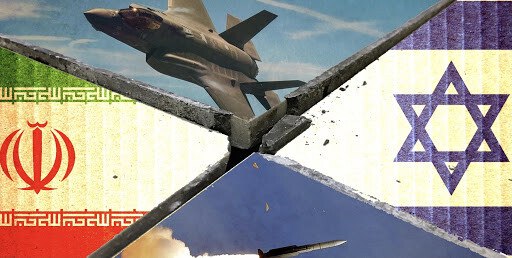Is Iran Threatening To Attack The US? Here's What You Need To Know
Iran's threats to the US are loud but not yet actionable, driven by anger over perceived American support for Israel's devastating strikes.

The mounting destruction and death toll in the conflict between Israel and Iran is raising fears of broader escalation, with the United States caught in the conundrum of military involvement in the Middle East's most perilous confrontation since the Gulf War.
Iran's missile strikes on Israel, retaliating for Israeli attacks on its nuclear and military sites on 13 June 2025, have sparked global alarm about potential threats to American targets, particularly military bases in the Gulf.
Tehran's accusations of US complicity in Israel's aggression, coupled with heightened regional volatility, fuel concerns of an unpredictable escalation.
Assess Iran's Provocative Rhetoric
Iran has not explicitly threatened to attack US soil, but its leaders have issued stern warnings.
Foreign Minister Abbas Araghchi claimed 'solid evidence' of US support for Israel's strikes, which killed 224 people and targeted Iran's nuclear facilities, per Al Jazeera.
Posts on X, like one from @NageenaAbbasi on 13 June 2025, quote Araghchi stating the US, as Israel's 'main backer', bears 'full responsibility' for consequences.
Iran's Defence Minister previously warned of strikes on US bases in the Middle East if conflict escalates, per @MISSION_FIRST on 12 June 2025.
These statements, though rhetorical, heighten fears of miscalculation, with no confirmed plans for direct US attacks, per Mint.
Evaluate US Involvement and Response
The US denies direct involvement in Israel's strikes, with President Donald Trump stating on 15 June 2025 that the US had 'nothing to do with the attack on Iran', per AP News.
However, Trump vowed severe retaliation, promising 'the full strength and might of the US Armed Forces', if Iran targets American interests, including bases in Qatar, Kuwait, or Saudi Arabia, as reported by Politico.
The US has deployed additional naval and air assets to the region, strengthening deterrence, per The Guardian.
Iran's accusations stem from Washington's arms supplies to Israel, worth £7.2 billion ($9 billion) annually, fueling Tehran's distrust and anti-US sentiment.
Explore Iran's Strategic Options
Iran could target US regional bases with missiles or disrupt the Strait of Hormuz, impacting £80 billion ($100 billion) in daily oil transit, per Al Jazeera.
Such actions risk alienating mediators like Qatar, which Iran values for diplomacy. The Islamic Revolutionary Guard Corps vowed to 'intensify' attacks if Israel persists, per Reuters, but has avoided direct US targets so far.
X posts, like @RefuteFakeNews, warn of 'catastrophic' US retaliation if Iran acts. Diplomacy remains viable, with Iran open to nuclear talks if Israeli strikes halt, though trust is fragile amid ongoing regional skirmishes.
Navigating a Volatile Standoff
Iran's threats to the US are loud but not yet actionable, driven by anger over perceived American support for Israel's devastating strikes. The US's stern warnings and military buildup signal readiness, yet both sides seem cautious of direct conflict.
Avoiding escalation requires deft diplomacy, mutual restraint, and urgent dialogue to defuse tensions. Engaging neutral mediators like Qatar, strengthening international coalitions, and addressing Iran's grievances through backchannels could prevent conflict.
Robust sanctions monitoring and nuclear deal negotiations offer paths to stability. Failure risks a wider war, costing billions, destabilising global markets, threatening energy security, and claiming countless lives.
© Copyright IBTimes 2025. All rights reserved.





















